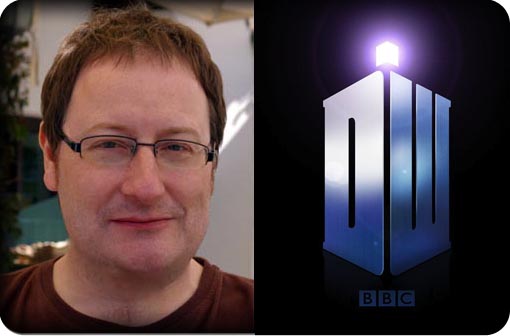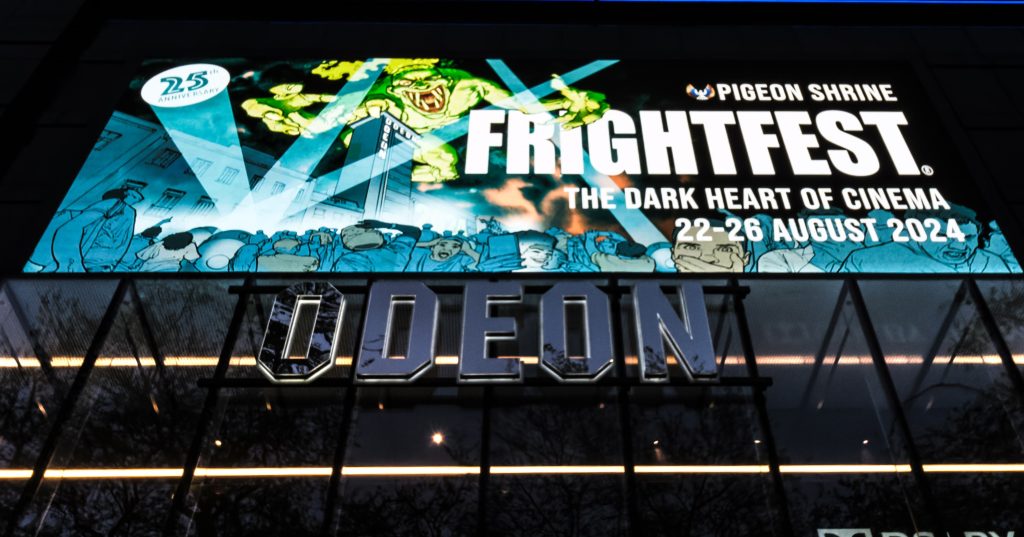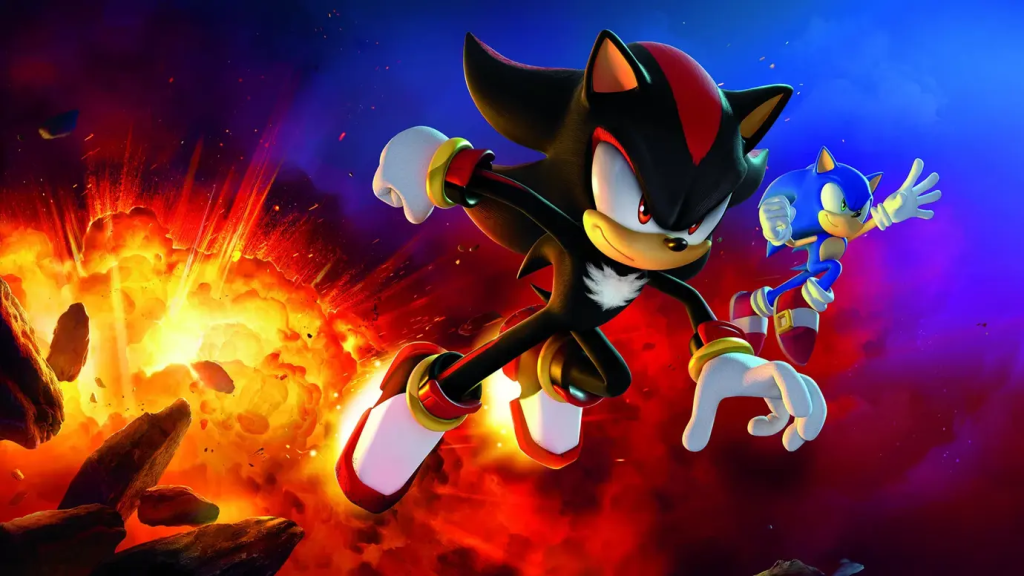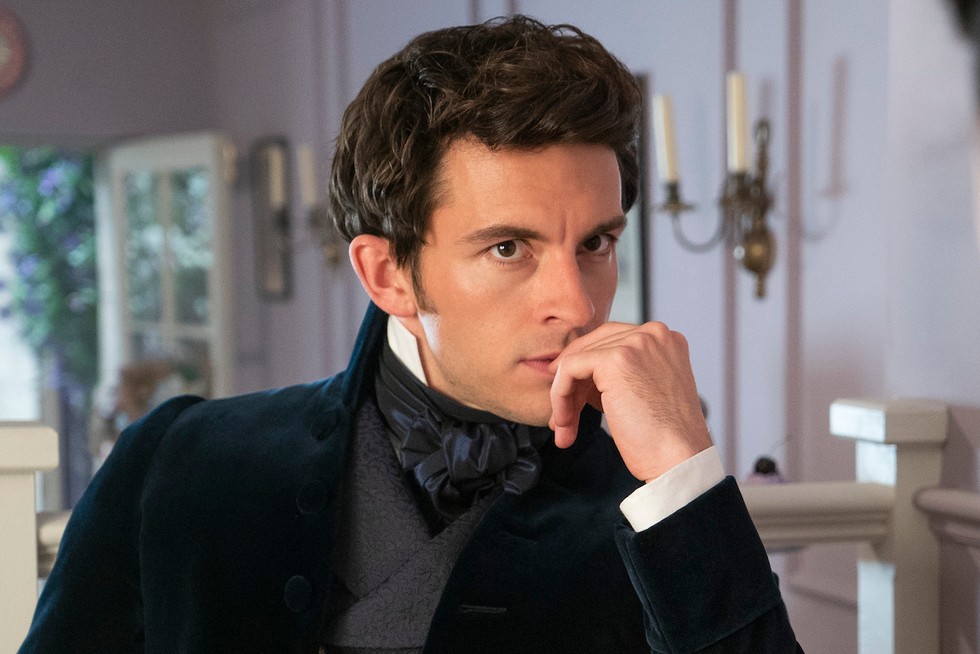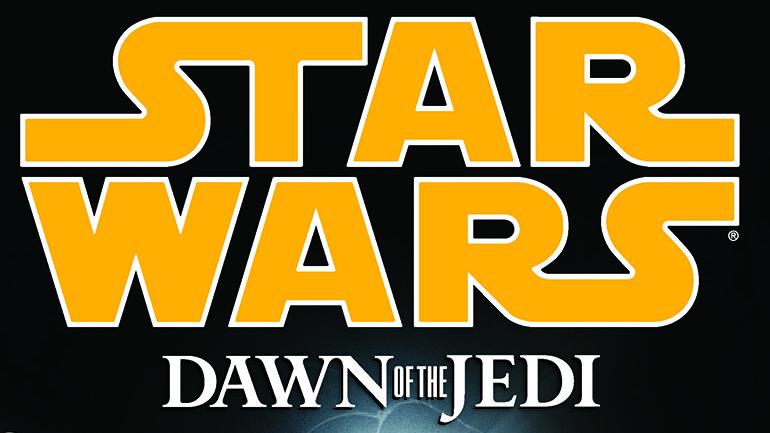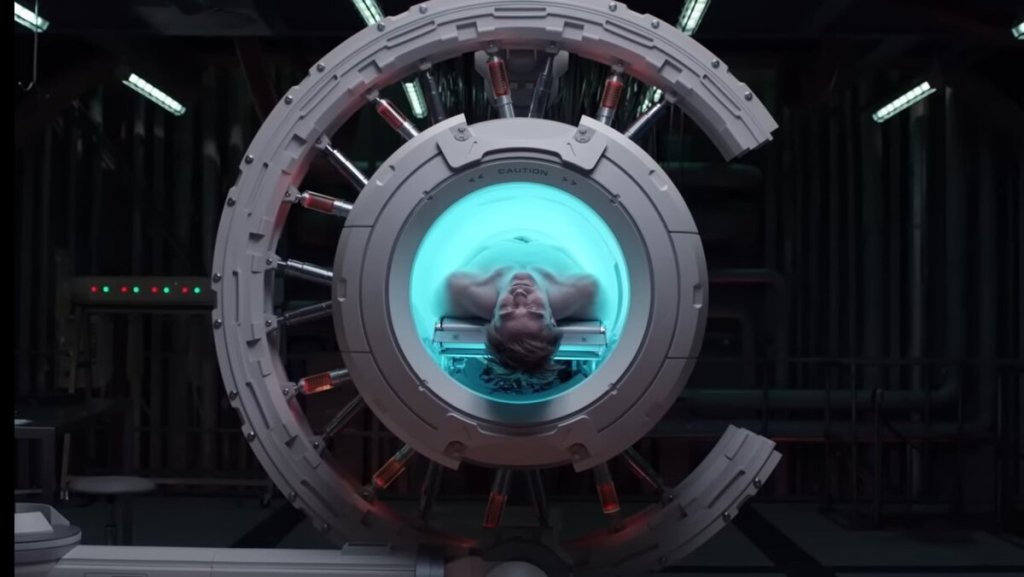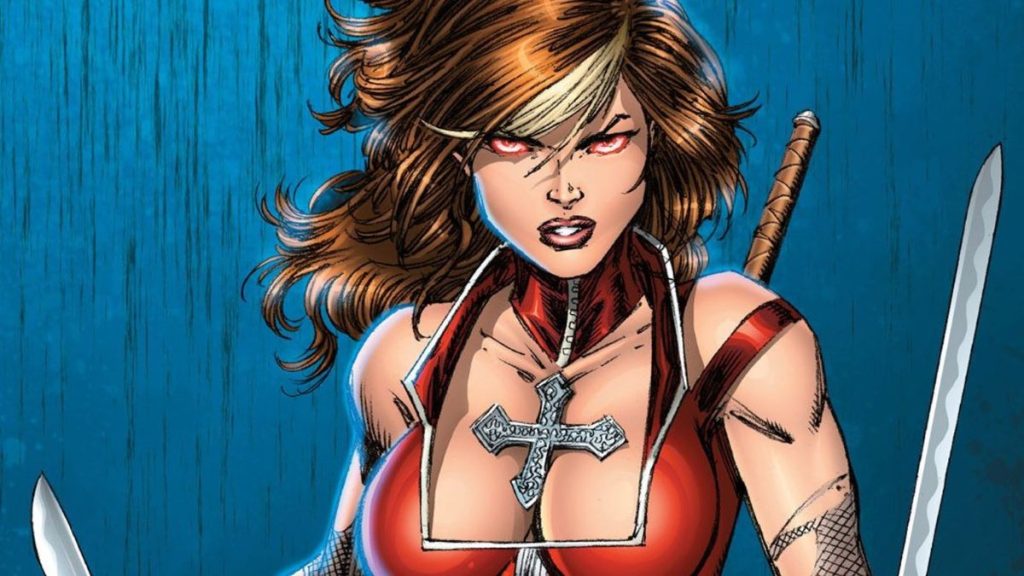
Starburst recently caught up with television writer and producer Chris Chibnall in Dorset, in the very locations used for his new series Broadchurch, to talk about his writing on that, on Torchwood and Doctor Who…
Starburst: Not having done the New Adventures and so on, you weren’t necessarily the most obvious choice to write for the revived Doctor Who.
Chris Chibnall: I’d come up through theatre. Doctor Who fans aren’t going to know that, but I’d had an attachment to the National Theatre Studio, a year’s residence and a play produced at Soho Theatre, another at Southwark Playhouse, and one play that ran for three months in Paris and was produced around the world – still is. So I’d come up through that route rather than coming up through Big Finish or the novels.
By the point I came onto Torchwood, I’d written twenty hours of television, I’d worked with Julie on Life on Mars, and I’d got four seasons of what was a big hit for BBC1 with Born and Bred.
The producers would know you, but to viewers, you’d be an unknown name.
You don’t become a writer to be a famous name! I worked my way up through small fringe theatre venues, because I loved writing drama, loved the process of rehearsal and production. Still do, more than ever now.
The aim is to have a career. It’s like any job. I was lucky my first show got green-lit onto BBC1. The first episode of Born and Bred was the first hour-long drama I had made. So then I sat down to write episode two and I was like, “I’ve never written an episode two of anything! I don’t know what to do!” I’d done plays!
So, Julie remembered me for Torchwood because I’d done a good job on Life on Mars. I’m really proud of my episodes on that. Coming out of Born and Bred, the advice was, “Now you go and do your next show on your own.” But then I had a meeting with Kudos and they gave me episode one, and I read Matthew Graham’s script, and they said, “You wouldn’t fancy doing this?” I was so blown away by that script. It was one of those scripts that you just read and you went, “This is the show we never do in the UK.” So I jumped at that and I had a really great time doing that. I’m very proud of those episodes, especially the one in Season Two. Life on Mars is just one of my favourite experiences full-stop, and my favourite results. John Simm and Phil Glenister: such amazing actors.
working on Life on Mars and Torchwood were very similar. Working on the first series – and actually the exciting place to work on any show is the first series – nobody knew whether they were going to work, either of them.
Gaffer! was one of your plays; is football your other passion, then?
I have ended up writing about it quite a bit because I find it endlessly fascinating, I really love it. It’s a closed world, full of passionate people, and it’s about those people having to work together in pursuit of something. And football tends to be a microcosm of society at any given moment, it reflects what’s going on in the world, in a very unique way. I wasn’t interested in football, and then after college, I went and worked at Sky when it had just bought the football rights, and there was nobody working there and I ended up working for Sky Sports by accident, doing lots of things for them, and being the guy who catalogued every shot of their football coverage! And then even floor-managing a couple of their outside broadcasts by accident, because the guy was off sick and somebody came over on a Friday and said, “Come with us to Norwich on Sunday, you can come and floor-manage for Richard Keys.” It was bananas! It was great, it was a funny old place to work then because they had no money; if you were around they’d just go, “Come and do this!” We lived in Nottingham when I was younger and my dad would take me to Forest games during the sort of ‘77 period: Brian Clough, European Champions and all that, so that was good.
So you didn’t grow up as a Manchester United fan?
No, not at all. United, hilariously, came out of Cyberwoman – because that was the first time I worked with James Strong. He’s a brilliant director, and he’s just done Broadchurch. He directed Cyberwoman and They Keep Killing Suzie, and we were just talking after that.
So was United your idea or James Strong’s?
James had been involved with a documentary about it that hadn’t happened, and so he was really interested in telling the story. I’d written this play about a football manager, Gaffer!, and Brian Minchin, who was a script editor and now produces Wizards Versus Aliens, gave James the script of Gaffer! while we were working together. And he read it, and while we were having a drink he said, “I’ve always wanted to do the Busby Babes.” That was just the point where I went, “Oh, that would be amazing, we should do it as a single film.” Julie Gardner gave me a script commission to write it, and then I didn’t have any time to write it because she made me do more Torchwoods and Doctor Whos, so it took me a couple of years to write it.
It built from there gradually, and then when Piers came in it was sort of verging on a green-light and Piers got it over into a green-light and was very supportive. It all came out of that. Everybody had been trying to do it, but we were just very lucky in that there had been six or seven different scripts for that idea in the industry, people had been trying to make films of it. But James had been and talked to the survivors, he talked to Harry Gregg and Kenny Morgans, all these people, and the pilot’s family; he’d really talked to everyone. So we used all that. And it was just at the point where BBC2 were starting to make single films again, because they hadn’t made them for a long time. So that’s how that came about.
42
I think Graeme ’s so brilliant at pace and energy and kind of operatic thrills and spills and actually that’s really really rare. There’re not many directors in this country who can do that. 42’s not a brilliant script, but he gave it great energy, and he also did the bit in the airlock really nicely too, that’s very character driven, that moment.
We’re not sure the imposition of the 42-minute thing helps it.
I don’t agree, I like it for that; I think it’s exciting for that. I like the real-time-ness of it, I think if you took that away it would have been a much thinner episode because I think it’s me trying to learn. And I think episodes need headlines. I know as a fan you don’t need those, but actually, in the Radio Times: Episode Seven of Series Three? “Oh look, it’s ‘real-time’; we haven’t seen that episode.” Russell and Steven are very acute about why people are turning on this week. Because you can’t take that for granted, and the moment you do is when the figures drop. I think it’s hard when you’re doing thirteen. I think there’s a million ways to do it; but it has to feel ‘special’. Every week there has to be a good reason , whether that’s a guest star or an idea or a monster, you want that headline or you want that image.
But also, that idea of real-time I think came from Russell as a way of trying to help me finish the script within the time; to focus momentum. The whole writing process from start to finish took six weeks, which normally you’d have for a first draft. Because they got the scheduling wrong and it had to be pulled forward, and I’d just been doing Torchwood so I was pretty much dead on my feet. So it wasn’t the environment in which to write your first Doctor Who episode.
It was an interesting one because when I agreed to do the episode, the episode I was pitched was a totally different episode. Russell said, “Come and write this episode,” a totally different story. It was one with the Ood, and it had Zack and Ida from The Impossible Planet, and it was like going to see what had happened to them afterwards. There were tiny elements of it in Planet of the Ood but it wasn’t the same story. And so we did a lot of planning on that – and it was an alien planet. And then I finished all my writing duties on Torchwood and we had the meeting and it was like, “Actually we can’t afford to do that. We need an episode set in corridors, with no monsters,” because we couldn’t afford monsters. That’s probably why there are no real aliens.
You still got your action figure.
Yeah, who’s named after a friend of mine, a Chicago playwright called John Corwin. I was on the Soho Writers attachment thing for a year, and we were very good friends. I wrote and said, “I’m going to name a villain after you.” And so he has his own action figure! Which I’m delighted for; it’s a gift to any friend!
THE HUNGRY EARTH
This feels like a 1970s Greatest Hits brought into the 21st Century, was that in your thinking?
No it wasn’t; to be honest, it was all in the brief I got. It was: bring the Silurians back, and there’s a mine and a drill. So I think the moment you get that brief fans are going to go, “Oh, it’s kind of a bit Pertwee-ish.” You never go into writing thinking that. I can see that when you watch it you probably tick a lot of those things off, but a lot of those things are in response to production, so what your intent is at the beginning is not necessarily where you’re going to end up at the end.
My response to Steven’s brief was, “I want a village on the top and a city underneath.” I pitched it more as a Passport to Pimlico with the Silurians; it didn’t have that tone, but that idea of just a small bunch of people… because with the Earth invasion stories you’ve got to be very careful about your scale. The thing I learned from Torchwood is, how you do that and how you contain threats and how you spread them; what choices you make is a very key decision that looks easy and is a very difficult thing to get.
There was a very specific creature – not an historic dinosaur, almost as if there’s a lost dinosaur – that the Silurians had kept, and I’d written the first fifteen minutes of the episode, which was them arriving at the drill and it’s instantly attacked by this creature. And the day after I delivered that first draft I had this email from Steven which was delirious, he was really excited about it and I sent him a reference picture and he was like, “Oh, this is great!” And then we had the meeting, three or four weeks later, and he was looking ashen. I think Piers made Steven tell me and Steven said, “But it’s not my decision!” And they said, “Could you cut the creature? We can’t afford the creature.” We couldn’t afford anything; we could only just afford three Silurians, because it was written as four Silurians obviously, and then we had to be three because they couldn’t afford four prosthetics. They were having a really tough time. That’s the thing about doing Episode Eight, you’ve got to be really careful! It’s a new team, and they want to get everything right in the early episodes because it’s a new Doctor. We took a lot of hits on that two-parter, because rightly – and I don’t say this with any negativity; it’s not a complaint at all because we got to do the Silurians, the big city of the Silurians which I really wanted to see, and the cast were great. And I’m sure there were other episodes that were under equal amounts of pressure – you knew that the early part of the season had to be great and you knew that they wanted to finish – literally – with a Big Bang. So we had to take a few hits, as I’m sure all the other writers did as well.
Then there were a few things in the edit of Cold Blood that we lost for time, which I worried about. They cut the really crucial moment of Mo confronting Malohkeh about his torture, before waking up Elliott, which for me felt really important and I’m sad we lost. That explained lots more about Malohkeh, his back-story and motivation, and it resolved how he and Mo and the Doctor could all be standing together, given what Malohkeh’s doing at the end of the first episode. The framing device of Cold Blood was entirely different at script and shooting stage, it was from Amy’s point of view, more emotional, about the loss of Rory. The episode starts with the Doctor holding her in the TARDIS, telling her to remember, just after Rory’s died, and we go into flashback and the episode is presented as a memory until we catch up with them again at that point. There was none of the Silurians’ narration; I preferred it being about Amy, it felt more intimate, more personal, but then I would say that! And across both episodes quite a lot of small character moments went, all for understandable reasons: pace and time.
We don’t think Moffat’s first series has the consistency of his second.
I’m not sure I agree with that. I think these things often come down to the vagaries of production. The Beast Below is probably one of Steven’s best ever scripts, and the production of it was so not what was in the script. I remember watching that and thinking, ‘Oh,’ because it’s a really beautiful, operatic visual piece of writing. It’s bigger than The End of the World, but actually the way the visuals went, something wasn’t quite right on the production of that. The tone of it is odd as well, the tone of it is not the tone of the script. And tone is something that often goes unrecognised as a key component in things. I think it’s always fascinating. I really vividly remember reading that, because I read The Eleventh Hour and thought that was extraordinary and really hurtles along, and then I thought he did something new in The Beast Below, and I think he probably doesn’t look on it that fondly but I think that actually, if he published that script at whatever it was, first or second draft, it was a really beautiful piece of writing.
BROADCHURCH
It’s been a lot of work, but I’m very excited by what we’ve made. I wrote Broadchurch on spec, for myself. I’d been having a great time on other people’s shows, but after United, I was so proud of that film, I wanted to make sure my next project was as authored as that, and as good. So I just wrote it for myself, and then I very cheekily rang up Laura Mackie at ITV, because I’d known her from Law & Order, and said, “I’ve got a series, I’ve got a first script and a set of storylines, and nobody else knows about them and there’s no company, and it’s a serial and it’s all one story. Do you want to read it?” And she said yes. She read it within 24 hours and she was incredibly positive and dynamic about it. It’s been the best experience of my career, along with United. Broadchurch has been really fabulous.
What’s next for Chris Chibnall?
The Great Train Robbery, for BBC1, for later this year, hopefully. We’re doing two ninety-minute films; it’s World Productions, the team who did United. We start shooting quite soon. I’m really excited about it; Julian Jarrold directs the first film, who did The Girl and Appropriate Adult, and then James Strong directs the second film.
Any plans, desires or ambitions looking further into the future?
Lots of plans. I’m doing a bit of theatre at the end of this year again, which is nice, and I’m doing projects for other companies which stretch into next year. I feel at the moment I’ve got a nice mix; I love doing the single films, I loved doing United and I’m loving doing The Great Train Robbery, and original pieces like Broadchurch, that would be the plan. But who knows, I don’t take anything for granted.
You seem to prefer doing something for a year or two years, and then moving on.
I really like variety. I mean with Law & Order, I loved setting that up, I had such a great time doing that, and I’m very proud that that’s still going, because it was one of those where everybody said, “Well, that’s not going to work,” and we’re on Series Eight now, they’re getting into Episode Sixty or whatever. And that was always the aim of that, you know, do the British version that can be running for years.
I like doing different things. For me, to be able to do United, and Dinosaurs, and Broadchurch, that’s what’s really exciting to me as a writer. I love nipping in and doing a Doctor Who, but I love that I don’t have to run it, frankly! I love that that’s Steven’s problem! And that he has those headaches, and does it brilliantly and adores it, and so actually it’s a really nice situation to be in at the moment. To be able to go and get a single film off the ground, I feel very lucky about that, and in a way those authored pieces are the sort of stuff I’m interested in pursuing.
And you have the clout to do it now.
I don’t know if it’s clout. I feel very very lucky. It’s quite new, it’s quite recent. I’m very proud of United, it got an amazing response. It was nominated for quite a few awards like the Prix Europa, we were at the Roma FictionFest, we got a ‘Highly Commended’ at the Broadcast Awards and we were RTS nominated, but actually even without that we were very proud. We felt we’d made a film that mirrored our intent: to honour that story. And we had a screening in Manchester in front of 120 relatives and survivors that confirmed that.
But some of this is because I’m also a very hands-on executive producer from pre-production to tx, I’m involved in all the decisions, from design to casting to lighting to cuts to music. So on my own pieces now, like Broadchurch, I help deliver the show we’ve promised to make, that we intended to make. And that’s the hard bit, really. The biggest pitfall in television production is the gap between intention and execution. It’s a very strange and complex process and it has to be shepherded through very gently and delicately, but also with a degree of toughness. A million things can go wrong, from first idea to final edit, and most often they’re not anybody’s fault. Everybody’s trying as hard as they can, working as hard as they can.
Because generally, you look at stuff you’ve done, and all you see are the things that are wrong with it. When you’ve made it, more so than anyone, you’re the one who looks at it and goes, “Tcha!” You see it completely differently, because you see the things you achieved despite the constraints, and the things you didn’t achieve because you got it wrong, and they’re very different to how another viewer might see that. And I think that’s very common of everyone who works on Doctor Who, everybody’s their own fiercest critic, genuinely, and I know people don’t believe that, but actually, it’s as much about what you’re trying to achieve and whether you get there. You can’t really judge things by whether people like them; it’s like what your intent is, and how far do you get to achieving your intent. It’s the hardest thing to do in TV, to achieve what you set out to achieve, and that’s why, for me, something like Dinosaurs works, because it delivers what we set out to deliver. Steven wanted a fast, funny blockbuster romp with incredible scale and we managed to do that. Then, you get The Power of Three which is entirely different: much more intimate in its intent but I also think it delivers what it promises: time with the Ponds, and an examination of their developing relationship with the Doctor and each other.
And maybe that’s the thing about the first season of Torchwood, it doesn’t quite deliver what it’s trying to deliver, because we’re trying to work out what it is and how we do it on time and to budget, and it’s thirteen episodes from nothing.
So that’s what you aim for, and I think for me, what I’m excited about and terrified about with Broadchurch, is I feel it’s very close to what I intended, and I don’t know whether people will like that. I don’t know whether people will come to it, they may or they may not, and that’s really interesting.
In issue 386 of Starburst, on sale now, Chris Chibnall talks about his Series 7 episodes of Doctor Who, as well as revealing more about his new series for ITV1, Broadchurch. For Part 1 of our exclusive online interview, click HERE.

